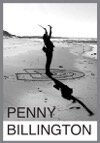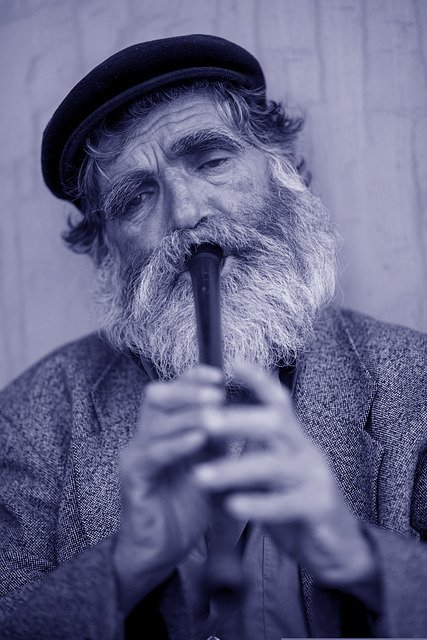Music to make the eyes leak
Music to support change: the tunes that make your eyes leak
There is a sweet sadness as the earth settles down into late autumn. ‘Tristesse’ is perhaps the best word for a melancholy that is not un-enjoyable, and we often use music to heighten and indulge that feeling properly.
It’s an essential part of letting go: we don’t want to be cheered up, to snap out of it; our souls need space and time to explore a depth of feeling – and maybe you have your favourite lyric for that?
Autumn is a time of fluidity – Druids call it ‘Light of the Waters’ and, as we have harvested, so we consciously flow forwards. But in Western Occult circles, this equinoctial turning of the Sun Tide takes us into an air phase. In the world, autumn rains drench us and blast us with roaring winds: and on the inner levels, we journey fluidly into the dark times and enter the phase of thought, of considering, reviewing, of generating ideas to incubate in the dark times. Here is the diagram of the tides, which flowed through the energies of the elements from Midwinter Solstice to Vernal Equinox (water); Equinox to Midsummer Solstice (fire); Solstice to Autumnl Equinox (earth) and from Equinox back to Midwinter Solstice (air).
The Sun Tides
The occultist Dion Fortune likened this great Sun Tide to a cosmic gear change, which was a telling metaphor in the early days of the car. Anyone else remember the phrase, ‘ double declutching’ ?? The definition: ‘to aid in matching the rotational speed of the input shaft being driven by the engine to the rotational speed of the gear the driver wishes to select.’ So, it’s to help effect a seamless transition…to step up or down; at the equinoxes the cosmic gear change is from the light to dark half of the year. Each of us can decide what that means, in practical (slow down; more sleep; change of diet) and spiritual (more meditating; journeying through the night sky; engage with mystery) terms.
Many people have experienced difficult circumstances in this strange year. ‘Post Covid’ we might have expected to bounce back to normality, but its psychic impetus seems still to be rippling out. So let’s not ignore and bundle up our confusion and melancholy, but gently, kindly, give all these feelings a little regular space to sift down into their rightful place in memory. And let’s use music, for music reaches the parts that other arts don’t. It can activate and connect our synapses in miraculous ways. The most ancient senses – scent and sound – are the most potent: and sound is the last sense to leave us. To confirm that music stirs the emotions, watch a horror film until you’re scared, and then continue with the sound muted. A visceral experience becomes two dimensional; we are spectators, admiring the techniques of light and shadow, action and stillness, not emotionally connected and with a significant reduction in the fright factor.
Your playlist for Melancholy
Which is your favourite music to be sad by? ‘One for my Baby’ asks the bar tender to put on music to wallow by..
‘I got the routine
So drop another nickel in the machine
I'm feelin' so bad
Wish you'd make the music easy and sad…’
Is it just the lyrics, or the melody itself that yearns? As a black & white, smoke-filled film clip, it’s redolent of a time remembered but long past, as well.
At our soul’s-depth, we are yearning beings. It’s the feeling that, just over the next horizon, just a breath away, the marvellous and wonderful will be revealed. And maybe we will come to that revelation through the gate of sweet sadness.
Ancestral roots
This archetypal figure will already be stirring emotion in some of us. Any link with a past culture can tug at the heart strings – be they Irish traveller, Newfoundland sailor or from any occupation or any place in between.
I was moved by a video of a Jewish old folks’ home: people with dementia, some still suffering the horrors of WWII, who had been totally unresponsive to external stimuli. Then came a fiddler playing the folk tunes of their childhood: although appearing still vacant, many were smiling gently and tapping along: their souls were touched and nurtured.
If we have ancestral roots, or are drawn to a place, its music will have a direct line to our heart: the wailing songs of the Appalachian Mountains, the laments of the Irish, the poignant blare of the Scottish pipes and plangent harp tunes of the Bretons… the list is endless. And how strange that we can identify a tune’s country of origin. The modal strains of the land express themselves through their musicians. If you have not yet discovered the origin of your loved music, please do explore. Finding it is another aspect of coming home.
Personal depth
Travelling from the cultural to the personal, there is music from our past whose memories we would not be without, for they are se enriching. Who doesn’t recall the soundtrack of their formative years? Indulge me a moment…
Bach’s Coffee Cantata (one of dad’s few LPs); Cliff Richard’s ‘Living Doll’ at a fair ground – an earliest memory; then, The Stones, Leonard Cohen, folk bands; Bowie and Lou Reed at college – the first taste of feeling outré, of boys wearing dresses and flirting with danger. As Karen Carpenter sang, ‘All my best memories come back clearly to me, some can even make me cry… It’s yesterday once more.’ Her music wasn’t my taste, but what a voice – and an apposite lyric!!
Time-travelling, we experience again the pleasures and pains of growing and catch an inspiring resonance of our youthful optimism love and trust; of the potential that was then and is still within us as we add to our life’s harvest every day. When did you last feel joyous? When these ol’ favourite platters come on the radio or through shuffle-mix-random formats, really listen; hum, sing and dance along. Pause to thank the memory and emotion they evoke.
Music that bypasses the memory
Then there’s the music that makes your eyes leak – an experience quite separate from crying. Here’s my story.
I was in Bristol café having brunch. There was background music, and ‘Observatory Crest’ by Captain Beefheart welled out.
“Now the city was busy, we wanted to rest
She decided to drive up to observatory crest…
We went on a ride, we got outside,
The sand was hot, she wanted to dance…’
Gentle, rather inconsequential lyrics. But suddenly tears were leaking from my eyes and pouring down my face. I was quite composed; it was as if it was happening outside of myself, and I realised that something deep within and usually un-get-atable had been touched. When emotions are too complex or difficult for our busy front brain to cope with, then music is our only resource. I’d liked this song at college, but why the tears came is still a mystery. It was a profound experience.
For Druids - or spiritual seekers whatever your path - music is a wonderful resource; and if we aren’t moved by composed kind, then the quieter it will be for us to hear the whole of nature singing to us. The more we sing back to the world and imitate natural sounds – a bird’s call, dog’s bark, frog’s croak, chipmunk’s chatter, creaking branch or rustling leaves – the more we tune in and join in, the more we build an intimate internal soundscape to support us in the poignant sweetness of joy and sorrow that make up all our lives.
Somehow, and magically, from whatever source, music touches our souls.



